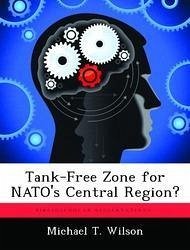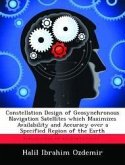This monograph examines the concept of a mutual tank-free zone for the European Central Region and tests its validity as a possible operational concept for NATO. The discussion assesses the military implications of the concept and its usefulness as a mechanism of applying military means to achieve political ends. This issue is important because NATO leaders are looking for ways to strengthen deterrence and conventional defense at relatively low economic and political costs to their governments. The tank-free zone concept may be recommended as a serious proposal for future arms control talks as a method to reconfigure and realign conventional force asymmetries. The discussion begins with a contemporary perspective of the current NATO defensive capability and orientation. The political demands of deterrence are compared with the military requirements for defense. In turn, these are contrasted against the essential requirements for strong defense as expressed by Clausewitz and U.S. Army doctrine to identify the weaknesses in the NATO approach. The capability of a tank-free zone to redress these deficiencies constitutes the analysis. The monograph concludes with an assessment of how well the tankfree zone concept contributes to enhancing and strengthening the conventional defense of NATO, and recommends the beat courses of action to pursue. The study suggests that the tank-free zone is not militarily supportable until significant technological improvements in NATO antitank weaponry are realized.
Hinweis: Dieser Artikel kann nur an eine deutsche Lieferadresse ausgeliefert werden.
Hinweis: Dieser Artikel kann nur an eine deutsche Lieferadresse ausgeliefert werden.








